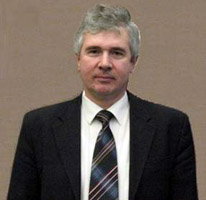| |
In the recent years, control of multi-agent robotic systems has received a great deal of attention in science and technology. The miniaturization and increased computing power of sensors and actuators can further extend the range of applicability of the results of modern control, identification, and estimation theories. In particular, theoretical issues of adaptive control in changeable environment and under time-varying structure of the state space have been only marginally considered so far due to the limited ability of practical realization, and require more attention.
Use of traditional mathematical models of motion of systems with a large number of transducers / sensors and actuators often leads to very complex problems involving extremely high-dimensional state spaces. The multi-agent technology can effectively solve many of the problems arising in this context by replacing the general model of interaction with a complex system having multiple local models and their aggregation (clustering).
We consider the following examples to be potential applications: the possibilities of using Local Voting Protocol for the adaptations of airplane's feathers in a turbulence flow, load balancing for the complex network, design of the New Fastest Computer.
Before conclusion we discuss the modern stochastic programming approaches.

Granichin Oleg
D.Sc., Professor, Professor of System Programming Department, Faculty of Mathematics and Mechanics, St. Petersburg State University, author of more than 70 publications in leading scientific peer-reviewed Russian and International journals.
Research interest: multiagent adaptive control, compressive sensing, clustering (data mining), nanotechnology, scientific and engineering computing, general question of computational theory, adaptive and iterative control, randomized algorithms of stochastic multidimensional estimation and optimization, system identification, control relevant system identification, learning theory, pattern recognition, theory of estimation.
|